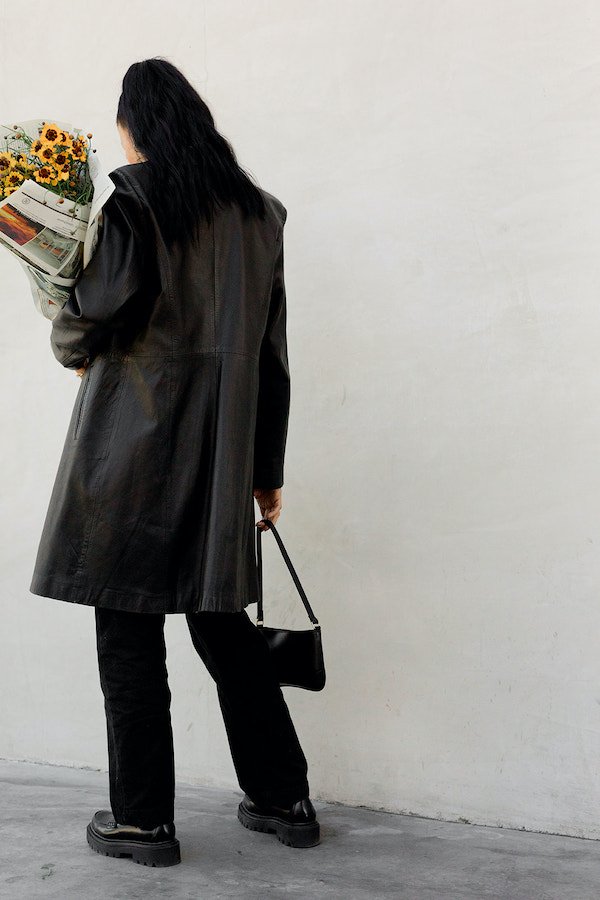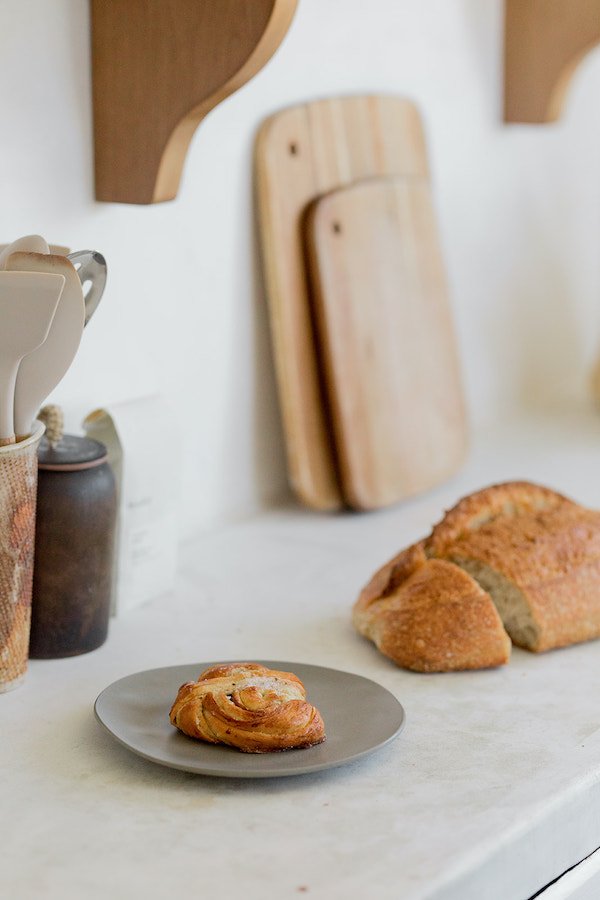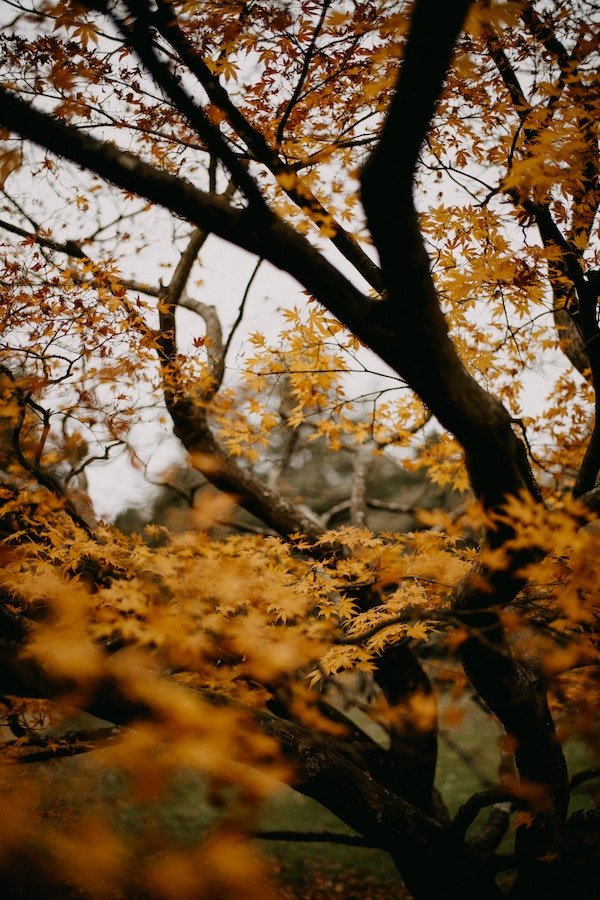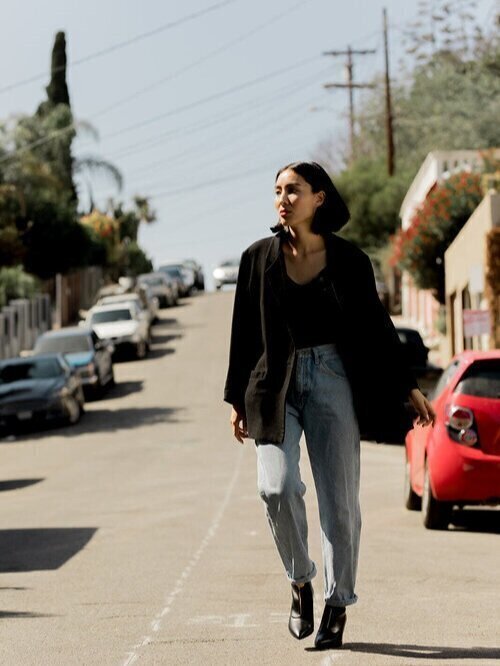
“Origin Story” And Other Reader-Submitted Poems Inspired By Nostalgia
This poetry collection was reader-submitted for our Summer Essay Series on themes of growth, aging, transformation, and renewal.
Origin Story
By Gabby De Matteis
Apulia, Bari, Andria. The buildings look like you, Sue,
when I place curious stacks of vowels in the search bar.
Like a child singing along to the radio, I don’t know the words,
just the noise they make when slipped together. Your language
made damp and formless – a wet mess in my cloud-grey mouth.
The old songs get quieter with every year that passes.
Aspetta. I catch one note fewer and I am less like you
and I hate that. More than I can express in any tongue.
My mother said on the phone the other day, she said
you would never have left that place by choice.
And I wonder who you would’ve been, if you’d stayed –
queen of the village on the hill, no brick-built third language,
no factory-made scars. Grandchildren baked bright in sun,
loving like demolition, like heat-shimmer and dust. Then again,
I would not be there. You would be someone else’s,
Nonna-not-mine. And they’d call you Assunta, not Sue.
“My poem is about my Italian grandparents, who emigrated to the UK before I was born. ‘Origin Story’ is about my grandmother (nonna) – her name was Maria Assunta but she chose to Anglicise her name after moving here and went by ‘Sue’ instead. I wrote this poem after looking up her hometown in Italy on Rightmove and clicking through loads of properties for sale, trying to spot something of her in the photos.”
Gabby De Matteis is a freelance editor and artist. Most recently she worked on the TV show Doctor Who at the BBC, and before this was a children’s book editor at Penguin Random House. This is her first time putting her poetry out into the world.
Home
By Pegah Moghaddam
I lost my home the other day,
So I looked under cushions and
Searched inside cabinets
Hoping I’d find it.
I lost my home the other day,
So I asked you
If you’d accidentally
Taken it.
I lost my home the other day,
So I ran around,
Frantically trying to rebuild it.
I lost my home the other day,
So I begged and pleaded with God
To surrender it.
I lost my home the other day,
And I sat silently staring
And suddenly, my broken heart
Began to beat
Tapping at the edges of my chest
And tears welled up in my eyes
And they cascaded down my cheeks
And pooled in the grooves between my breasts
And the words: “I’ve lost my home,”
Formed in my mind’s eye
And my hands released their fists
And my jaw relaxed
And my heart beat rhythmically
Like drumming at a funeral processional
And as my heart beat
And my tears pooled
And my jaw gave,
I was held by the home
That was here all along.
Pegah Moghaddam is a licensed clinical psychologist in Atlanta, GA. She is passionate about mental health and living life to the fullest extent. She enjoys practicing yoga, giving clothing a second life, and engaging in meaningful conversations.
A Triptych of Memory
By Andrea Turnquist
Every time
I make Nutella toast
I think of D. Clark
and her toaster oven
in her petite Parisian appartement
in the dix-neuvième.
Or of marshaling through
flooded streets, rain like a waterfall,
up darkened fairytale hills,
cold rain against our faces,
soaking through our shoes.
We crossed Montmartre –
eating the ‘best’ crêpes
havenless, under cloud and star;
hot butter and sugar
in our hands, laughing,
devoured in the rain, like ourselves.
——-
Without hands and years
to guide us, we make crooked
twists, wide-eyed oblongs
——-
The tree is still here
that we sat under – skyward
faces warmed by the sun.
Andrea Turnquist is a French to English translator living in Ohio who enjoys writing haiku (and sometimes other poems). She doesn’t journal, so haiku are like mini journals for her. Andrea is a dog mom who enjoys running and baking in her spare time.
Semantics
By Greta Chase
I can still Hear you’re Here
as you Pour your Poor granola and espresso shots
fired
disconnect from my emotional Bluetooth
as I watch Rain Reign over dandelions, they swell and disappear into the earth
like Q-tips
you must Earn your Urn but
now you’re gone and I Know No thing will disambiguate
in the late afternoon I Moped on my old Moped
I Daze into the distance for Days thinking about how
you can Dye your hair but you’ll still Die in the end
I miss your skin
granola skin
Saran-wrap(ped) skin
water droplets on Saran-wrap and oh the dandelions
they are flooded like junk emails
maybe it’s because I stepped on that sidewalk crack and broke my mother
everything is homophonous
but by whose standards?
Greta Chase is a senior at New York University studying neurolinguistics and Chinese. Besides writing, in her free time she plays for the Quidditch team, takes care of her many houseplants and two Siamese kittens, and enjoys iced oat lattes and bubble tea. You can find her on Instagram.
An Astronomical Body
By Abby Crowe
When I am just a sliver
of a girl I am told about the moon
and Her cycles—pangs I will never feel.
What I hear is that I will only ever be a dim
light, waxed or waning, more concave
than scythe.
How empty it feels to be different.
How empty it feels to be empty.
On the edge of being grown, I stop trying
to be full. It’s dangerous the way I stare
at the sun, waiting for the eclipse. I want
to be the vaguest line in the sky, hanging
fragile in the moment just before the fire
and the feminine inhabit the same space.
But when they cross paths the world
does not go dark. It goes on.
I’m a woman unlike other women.
It is my father who finally teaches me
to organize my day around low tide as we walk
forty miles of coastline. We pass whale bones
and hide in coves until the water steals back
to the skyline. When I cannot find his stride,
I ask him instead where his mind goes. In a voice
as calm as a light in the night he tells me he counts
to three and fills his belly with his breath.
What I hear is what counts —
eventually everything becomes
beautiful.
Abby Crowe lives in Los Angeles, California where she balances a passion for creative writing with a career in content marketing. A prior nonfiction contest finalist in the Black Warrior Review, her writing most often revolves around how we relate with ourselves and what it means to be a woman in this world.




